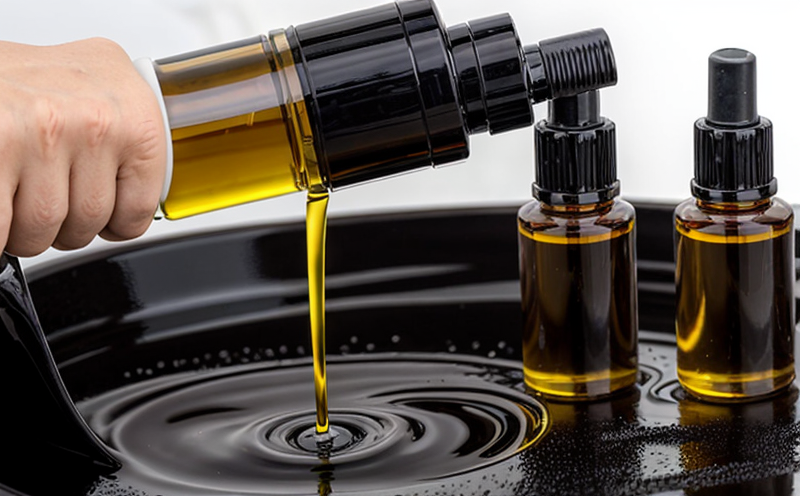Coating Resistance to Oils and Solvents
Unlocking the Secrets of Coating Resistance Why Eurolabs Laboratory Service is a Game-Changer for Your Business
In todays fast-paced and highly competitive industry landscape, manufacturers are under immense pressure to develop products that meet stringent performance requirements while maintaining quality and durability. One critical factor that can make or break the success of your product is its resistance to oils and solvents. Coating Resistance to Oils and Solvents (CROS) is a laboratory service provided by Eurolab that helps businesses assess their coatings ability to withstand exposure to various oils and solvents.
What is Coating Resistance to Oils and Solvents?
Coating Resistance to Oils and Solvents refers to the ability of a coating to maintain its integrity, adhesion, and performance when exposed to different types of oils and solvents. This property is crucial in various industries, including automotive, aerospace, construction, and manufacturing, where coatings are often subjected to harsh environmental conditions.
When a coating fails to resist oil or solvent exposure, it can lead to a range of issues, from minor cosmetic damage to catastrophic failures that compromise the structural integrity of your product. Moreover, regulatory requirements, such as those mandated by the European Commissions Solvent Emissions Directive (EU 1999/13), necessitate adherence to strict emission limits and coating performance standards.
Why is Coating Resistance to Oils and Solvents Essential for Your Business?
Eurolabs CROS laboratory service offers a comprehensive solution to help you overcome the challenges associated with oil and solvent exposure. By leveraging our expertise and state-of-the-art facilities, you can
Ensure Compliance Our testing protocols are designed to meet or exceed regulatory requirements, guaranteeing your coatings meet industry standards.
Optimize Coating Performance Identify areas for improvement in your coating formulation, reducing the risk of premature failure and extending product lifespan.
Reduce Costs By evaluating coating resistance upfront, you can avoid costly redesigns, re-toolings, and production delays.
Enhance Customer Satisfaction Deliver high-quality products that meet or exceed customer expectations, fostering loyalty and driving business growth.
Advantages of Eurolabs Coating Resistance to Oils and Solvents Laboratory Service
Eurolabs CROS laboratory service offers numerous benefits, including
Expertise Our team of experienced technicians and scientists possess in-depth knowledge of coating chemistry and materials science.
State-of-the-Art Facilities Our laboratory is equipped with cutting-edge equipment, ensuring accurate and reliable test results.
Customized Solutions We work closely with you to develop tailored testing protocols that meet your specific requirements.
Rapid Turnaround Times Our streamlined processes ensure efficient sample processing, reducing wait times and keeping your project on track.
What Can You Expect from Eurolabs CROS Laboratory Service?
Our comprehensive laboratory service includes
Sample Preparation We receive and prepare your coating samples for testing, ensuring they are representative of the product in question.
Testing Protocols Our team develops customized testing protocols that meet or exceed regulatory requirements and industry standards.
Data Analysis We provide detailed reports and recommendations to help you optimize coating performance and minimize risks.
Certification Our results are certified by our ISO 17025 accredited laboratory, providing confidence in the accuracy of your test data.
Frequently Asked Questions (FAQs)
Weve compiled a list of frequently asked questions to address common queries about Coating Resistance to Oils and Solvents
Q What types of coatings can be tested using CROS?
A Our laboratory service is suitable for various coating types, including paint, varnish, lacquer, and powder coatings.
Q Can Eurolabs CROS service help me improve my coating formulation?
A Yes! Our team will work with you to identify areas of improvement in your coating formulation, reducing the risk of premature failure.
Q How long does a typical CROS test take?
A Testing times vary depending on the specific requirements; however, we strive to deliver results within 5-10 working days.
Q What types of oils and solvents can be tested under CROS?
A We can evaluate your coatings resistance to various oils and solvents, including mineral oil, hydraulic fluid, and solvent-based products.
Conclusion
Eurolabs Coating Resistance to Oils and Solvents laboratory service is a game-changer for businesses seeking to ensure their coatings meet or exceed industry standards. By partnering with our expert team, you can
Enhance coating performance
Optimize product design and development
Reduce costs associated with premature failures
Deliver high-quality products that meet customer expectations
Dont let oil and solvent exposure compromise your products integrity. Contact Eurolab today to learn more about our CROS laboratory service and discover the benefits of working with a trusted partner in coating evaluation.
Sources
European Commission (1999). Solvent Emissions Directive (EU 1999/13).
International Organization for Standardization (ISO) (2017). ISO 17025 General requirements for the competence of testing and calibration laboratories.
American Society for Testing and Materials (ASTM) (2020). ASTM D4541-04(2020) Pull-off adhesion test.




